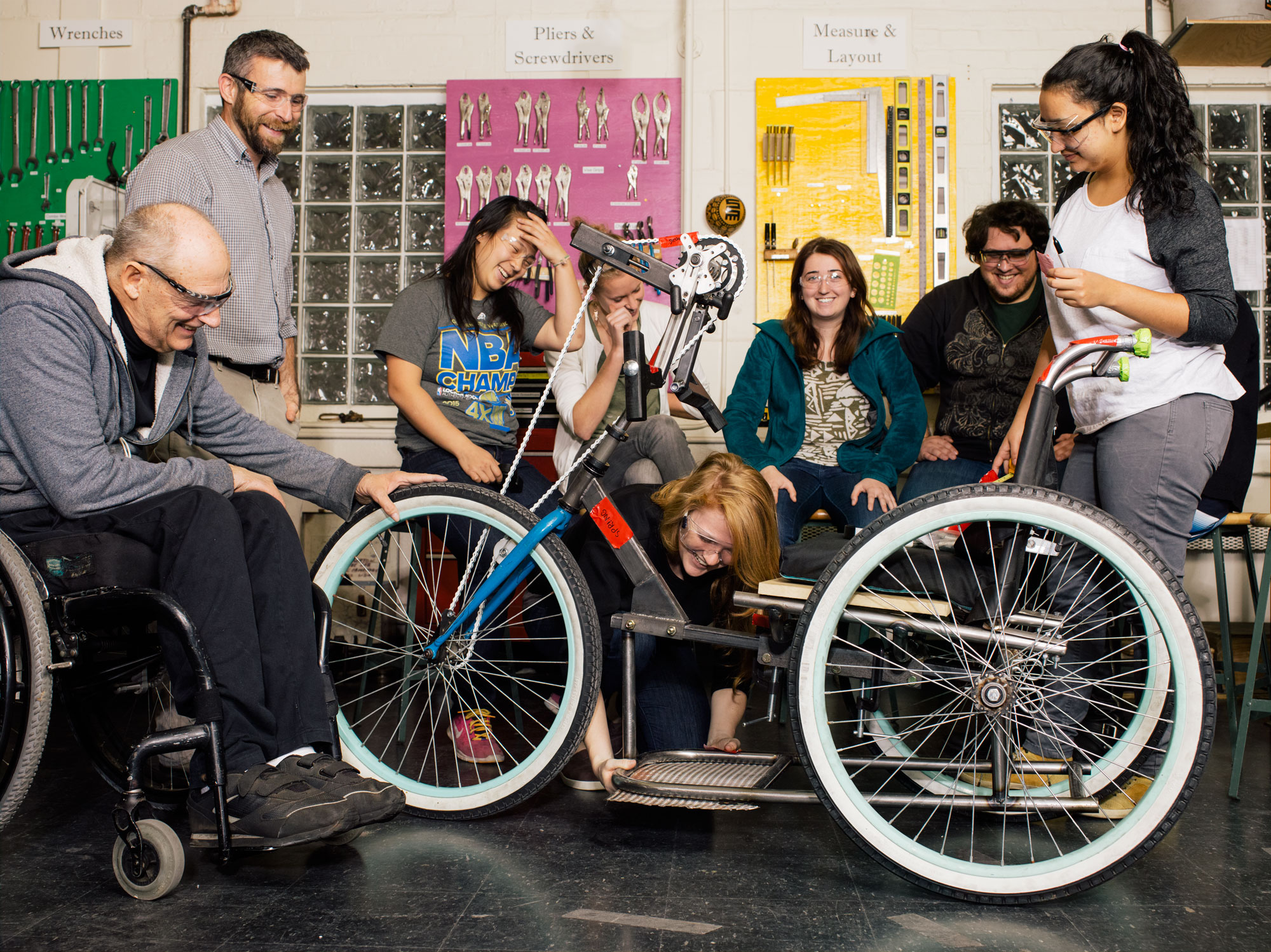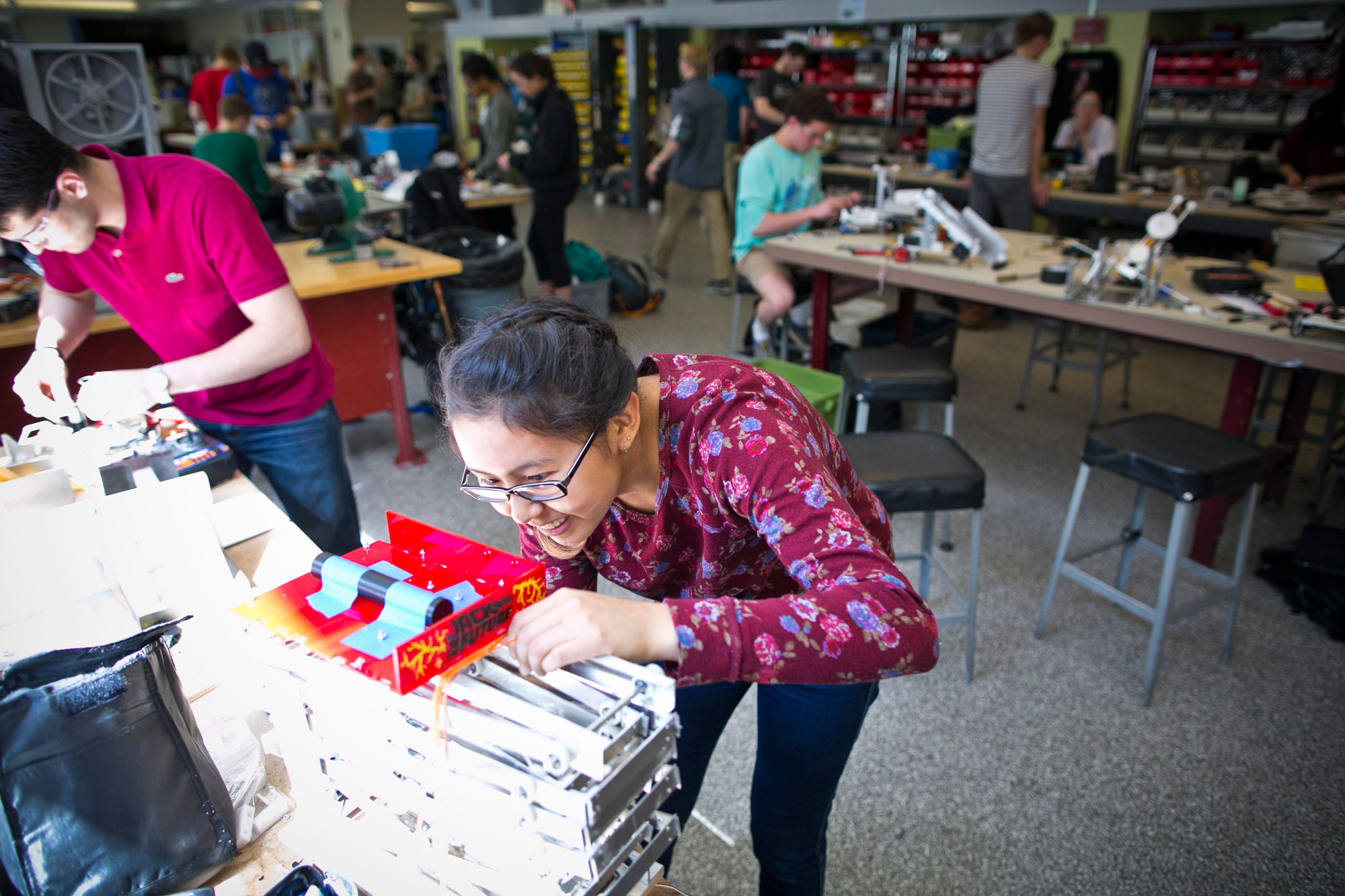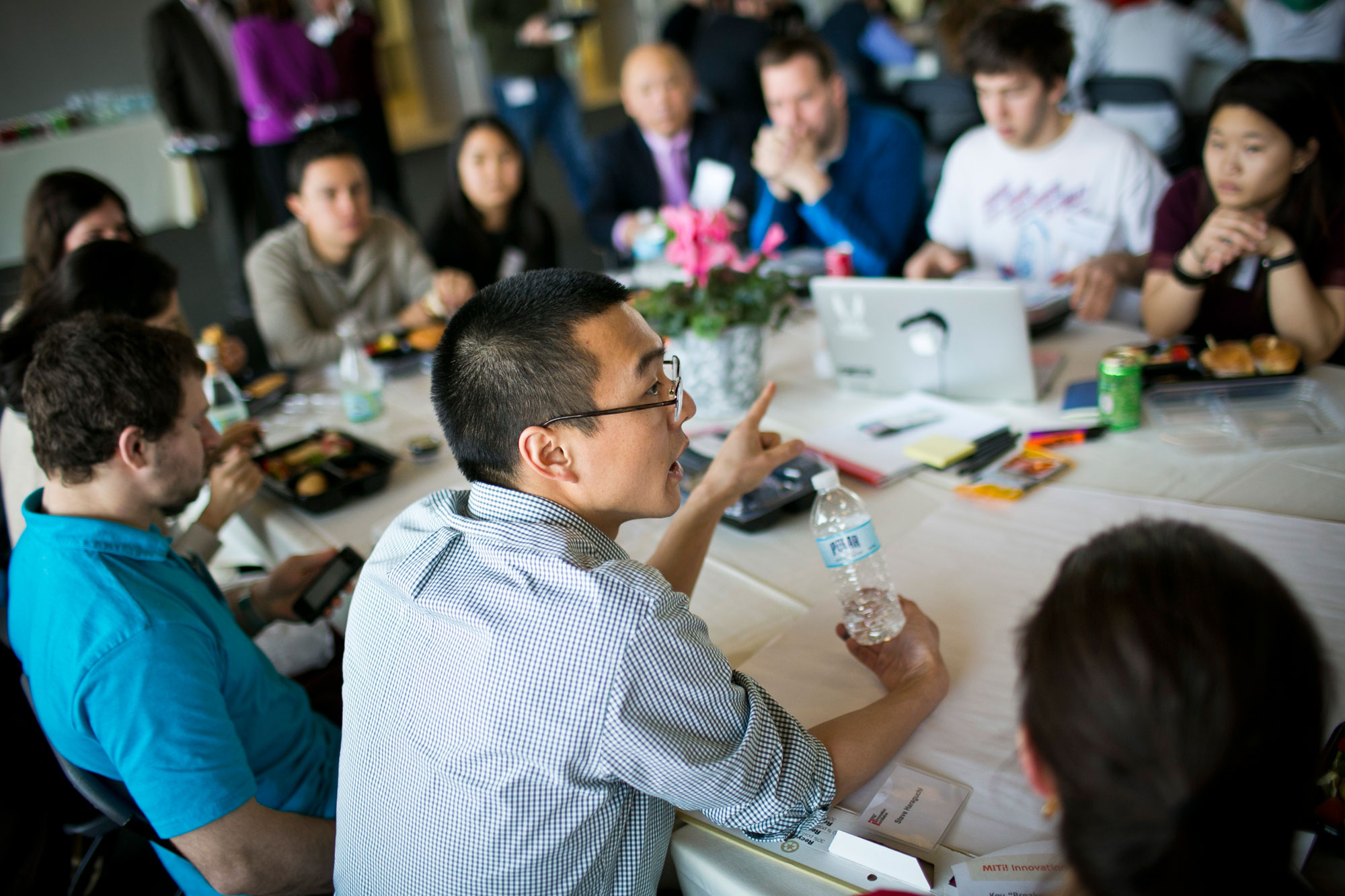“Helping innovators deliver their ideas to the world calls for accelerating the journey from idea to investment and investment to impact.”
Innovation and
Entrepreneurship
Overview
The maker culture was our first invention, and it remains the foundation of our innovation ecosystem. MIT’s other defining trait: a powerful connection to industry that has long fueled the translation of ideas to real-world impact. But the paths to the marketplace are evolving. Increasingly, ideas are brought to life by new ventures, from Kendall Square startups to global nonprofits. MIT is committed to fortifying this changed innovation landscape and developing new ways to shorten the route from inspiration to reality. We are equipping our students with the knowledge they need to bring their ideas to the world, strengthening our maker facilities, and infusing innovation into the art of innovation itself.

Education and Practice
The MIT Innovation Initiative works with all five MIT schools to strengthen the educational pathways and networks for students, alumni, and partners to move ideas from conception to impact. In MIT’s tradition of "mens et manus," we do so by combining hands-on, global opportunities for building expertise in the innovation process with insights developed from the evidence-based science of innovation.
During Independent Activities Period, the rapid-fire schedule of StartMIT seeks to expose MIT undergraduates, graduate students, and postdocs to all things entrepreneurial.
The Translational Fellows Program empowers postdocs to become the campus-wide champions of commercialization by granting them a day a week to focus on commercialization of their research. The goal of the program is to accelerate the transfer of research-derived technologies into marketable products.
The MIT Sandbox Innovation Fund Program connects students with tailored educational experiences, mentoring, and up to $25,000 in seed money to help qualified students and teams nurture their ideas and creativity.

Communities and Infrastructure
The evolution of Kendall Square is the story of a once-thriving industrial strip, turned urban wilderness, turned crucible of innovation. Now, it is home to one of the greatest concentrations of innovative companies in the world, particularly in the biotech and high-tech sectors. MIT is forging ahead with the Kendall Square Initiative: a bold vision to create a greater sense of place for both the Institute and its neighbors and more seamlessly integrate academic pursuits with industry.
Maker culture is central to MIT’s residential education and critical to the Institute’s innovation ecosystem, which supports the creation of practical solutions that have a positive, real-world impact. Makerspaces are also included in many student residences by popular demand.
The first of its kind among MIT’s innovation programs, the Hong Kong Innovation Node connects the MIT community with unique resources—including local universities, local alumni, entrepreneurs, advanced prototyping and manufacturing capabilities, and the world-class financial industry—in Hong Kong and the neighboring Pearl River Delta.
The MIT Regional Entrepreneurship Acceleration Program (MIT REAP) is a global initiative designed to help regions around the world accelerate their economic growth and job creation through innovation-driven entrepreneurship.

Research and Policy
What sort of company benefits most from startup accelerator admission? MIT Sloan PhD candidate Daniel Fehder—working with the MIT Innovation Initiative Lab for Innovation Science and Policy—is in pursuit of the answer.
Designed to foster innovation and accelerate advanced manufacturing in the US, new public-private consortiums are working towards creating a sustainable manufacturing innovation ecosystem. Known as National Network for Manufacturing Innovation Institutes (MIIs), each partnership has a unique manufacturing technology focus. Notably, MIT convened the newest of these MIIs, named the Advanced Functional Fibers of America Institute.
GOV/LAB is focused on innovations in citizen engagement and government responsiveness. Led by political scientist Lily Tsai, MIT GOV/LAB collaborates with social enterprises, funders, and governments to build and test theories about programs and technologies that enable governments to be more accountable to citizens.